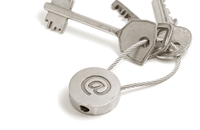
Lead Image © Kirill Bodrov, 123RF.com
Posteo, Mailbox.org, Tutanota, and ProtonMail compared
More Secure Email
It is a truism that nothing is actually free from the vast majority of email providers who offer free email forwarding and a webmail client: Most ad-supported services collect users' data to evaluate and resell it. Each document published from Edward Snowden's treasure trove just makes the situation more threatening – the amount of metadata and email that intelligence services store for evaluation is difficult to comprehend.
When the US mail service Lavabit [1] – where Snowden was a customer – was brought to its knees by the FBI because the owner refused to disclose the SSH key to his server and thus his customer's metadata, it became clear to many European users that a local provider offering the most secure email possible was the better choice – even if it cost a little more each month.
Trust Is Important
Trust involves not only the services provided, but where the data is actually stored. Since the NSA affair, many people no longer trust service providers from the United States. Having a service provider located in Germany (or other German-speaking country) might not guarantee greater data security or privacy, but the data protection regulations there do give rise to a level of trust more than in many other countries. This prompted a closer look at four email service providers from German-speaking countries (Table 1).
Table 1
Email Providers Compared
| Posteo | Mailbox.org | Tutanota | ProtonMail | |
|---|---|---|---|---|
| Mailbox from |
Buy this article as PDF
(incl. VAT)
Buy ADMIN Magazine
Subscribe to our ADMIN Newsletters
Subscribe to our Linux Newsletters
Find Linux and Open Source Jobs
Most Popular
Support Our Work
ADMIN content is made possible with support from readers like you. Please consider contributing when you've found an article to be beneficial.




